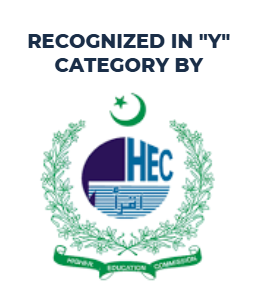Students’ Perceptions of Quality Assurance of Legal Education in Pakistan
DOI:
https://doi.org/10.24312/ucp-jlle.01.02.157Keywords:
Legal Education, Quality Assurance Mechanism, Students’ PerceptionsAbstract
Despite showing evidence of growth and advancement in many major sectors, Pakistan is still seriously lagging in terms of growth in its education sector. This inadequacy of advancement is evident in its legal education as it has not been given the necessary attention that is required to be on par with other developed nations. The quality of a country’s education is measured by the learning outcomes of the programmes offered to students in the form of education. These outcomes attest to the quality of the curriculum, the teachers, and the student’s performance, as well as to the teaching methods, the administration, the evaluation, and the linkages with other higher educational establishments. Although researchers are in consensus that the teaching faculty and students are the main stakeholders of the education system, it has been proven that the students are the best judges of an education system as they are the recipients whose lives are determined by the education that they have received. However, as it stands today, research has proven that there are numerous deficiencies in the legal education imparted in Pakistan. Given this, this paper gives a comprehensive overview of law students’ perceptions of the legal education system in Pakistan to highlight the strengths and weaknesses of the system. This quantitative research conducted via survey identifies the flaws in the system and proposes constructive recommendations for the improvement of legal education in Pakistan to ensure that the country is on par with other developed nations in the world.
Downloads
Published
Issue
Section
License
Copyright (c) 2023 UCP Journal of Law & Legal Education

This work is licensed under a Creative Commons Attribution-NonCommercial 4.0 International License.




